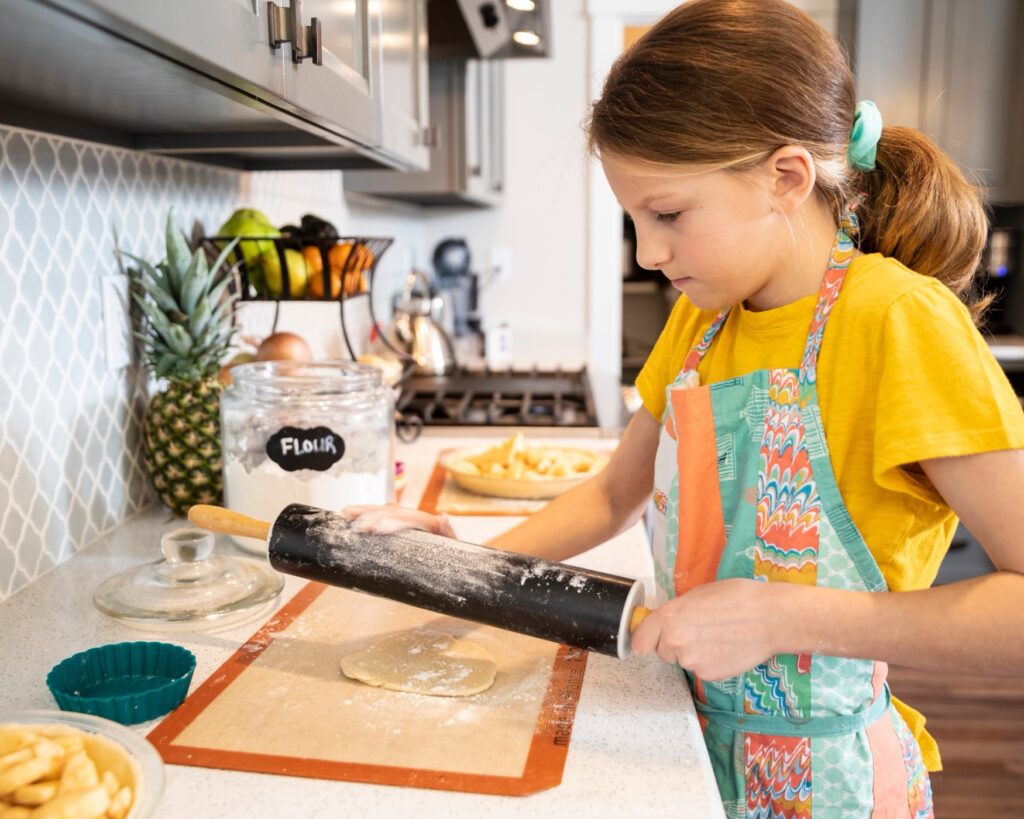As parents, one of the most challenging decisions we face is determining the right time to leave our children home alone. It’s a significant milestone that marks a transition towards independence, not just for our kids but for us as well. The question isn’t simply about reaching a certain age but involves a complex evaluation of maturity, readiness, and the ability to respond to emergencies.

Navigating this decision requires a balance between protecting our children and trusting them with a certain level of independence. It’s about understanding their individual development, considering legal guidelines, and implementing safety measures to ensure their well-being. As a parent and someone who has delved into the nuances of child development and safety, I understand the weight of this decision and the factors that must be considered.
This article aims to guide parents through this process, offering insights into assessing readiness, understanding legal considerations, and preparing both yourself and your child for this new phase. The journey toward leaving your child home alone is unique for every family, and by the end of this discussion, you should feel more equipped to make an informed decision that prioritizes your child’s safety and confidence. If you want specific legal laws on what age your child can stay home alone, check out this article about stay at home legal ages.
Understanding Maturity and Readiness
Deciding when your child is ready to stay home alone goes beyond their physical age. It’s about gauging their maturity level, which varies significantly from one child to another. A mature child demonstrates responsibility, follows instructions, and can handle unexpected situations with some degree of calmness and reasoning.
Key Indicators of Readiness:
- Responsibility: Does your child complete tasks and chores without constant reminders? Responsibility in daily tasks is a good indicator they might handle being alone responsibly.
- Problem-solving skills: Can they make informed decisions if faced with minor issues or emergencies? A child who can think on their feet is better prepared for solo time at home.
- Comfort with being alone: Is your child comfortable being by themselves for extended periods, or do they express fear or anxiety? Their emotional comfort is just as crucial as their practical skills.
Preparing your child for this independence isn’t just about ensuring they can physically take care of themselves. It’s also about fostering a sense of confidence and safety in being alone. This preparation might involve discussing potential scenarios they could face and how to handle them, from a power outage to an unexpected knock on the door.
In addition to readiness, creating a supportive and safe home environment is key. Part of this environment includes making the home a place of inspiration and comfort. Incorporating elements like black and white drawing wall art can add a calming and creative atmosphere, making the transition easier for kids and reassuring for parents. Art can be a subtle yet powerful way to infuse positivity into your home, making it a more inviting space for children staying alone for the first time.
Evaluating your child’s maturity and readiness, along with preparing your home and themselves for this new responsibility, lays a strong foundation for this significant step towards independence.

Legal Considerations and Guidelines
Determining the right age to leave your child home alone isn’t just a matter of assessing their readiness and maturity; it also requires a careful understanding of legal standards and regulations. The laws surrounding unsupervised children vary widely across different jurisdictions, reflecting a range of attitudes towards what constitutes adequate supervision and care.
It’s crucial for parents to familiarize themselves with their local legal guidelines to ensure they’re not inadvertently putting their children at risk or themselves in legal jeopardy. These regulations often provide a framework that can help parents make informed decisions about when it might be appropriate to start leaving their child home alone.
For those looking to navigate the complexities of these legal considerations, resources like legalknowitall.com can offer valuable insights and information. Such platforms are designed to clarify state-specific laws and guidelines, providing parents with the knowledge they need to make decisions that align with legal standards as well as their child’s best interests.
Understanding the legal aspect is an important step in the process, ensuring that as parents, we’re not only considering our child’s maturity and readiness but also aligning our choices with the legal expectations of our community. This dual approach helps create a safe and supportive environment for our children to experience their first tastes of independence.

Preparing Your Child for Independence
Transitioning to a phase where your child stays home alone is a significant milestone, both for them and for you as a parent. Preparation is key to ensuring this new chapter is successful and stress-free for everyone involved. Here are some steps to help your child—and you—feel more comfortable with this change.
Gradual Introduction
Start with short periods of time and gradually increase as you and your child become more comfortable. This could mean running a quick errand or visiting a neighbor. These short trials help build your child’s confidence and give you insight into how they manage on their own.
Establish Clear Rules and Communication
Set clear expectations about what is allowed and what isn’t while you’re away. Discuss how to handle visitors, phone calls, and emergencies. Make sure your child knows how to reach you at all times, and consider setting up check-in times for longer absences.
Emergency Preparedness
Go over emergency procedures and ensure your child knows what to do in case of fire, injury, or if they feel unsafe. Have a list of emergency contacts visible, including neighbors, family members, and emergency services. Practicing these scenarios can help your child feel more prepared.
Comfort and Reassurance
Reassure your child that feeling nervous is normal and that they can always contact you if they feel uneasy. Encouraging words and confidence in their ability to handle being alone can make a big difference in how they view this new responsibility.
Leveraging Resources for Support
For parents navigating this transition, seeking advice and support can be invaluable. Engaging with a community of other parents going through similar experiences can provide reassurance and practical tips. Resources like navigating parenthood together offer insights into common challenges and solutions, helping you feel more secure in your parenting decisions.
By taking these steps, you’re not only preparing your child to be alone at home but also instilling in them a sense of responsibility and independence that will serve them well throughout life. This preparation phase is crucial in building a foundation of trust and safety, making the transition smoother for everyone involved.

What Age Do Experts and Parents Typically Agree Is Safe for Kids to Stay Home Alone?
When it comes to determining the right age for kids to start staying home alone, there’s a wide range of opinions. However, most professionals and parents can find common ground around certain ages, considering various factors that influence this important decision. Understanding these factors and the typical age range can help parents make informed choices that ensure the safety and well-being of their children.
The Common Age Range
While laws vary by state and country, and there’s no one-size-fits-all answer, a consensus among child development experts and legal guidelines suggests that children around the ages of 12 to 14 may be ready to start staying home alone for short periods. This age range is considered a general guideline because it takes into account the developmental milestones most children achieve by early adolescence.
Factors at Play
Several key factors influence whether a child is ready to stay home alone, beyond just their chronological age:
- Maturity Level: A child’s maturity level is arguably the most critical factor. Can they follow rules, manage basic tasks, and stay calm in unexpected situations?
- Safety Skills: Does the child know what to do in case of an emergency? Have they demonstrated the ability to follow safety protocols, like not opening the door to strangers and knowing how to contact emergency services?
- Duration and Time of Day: The length of time and the time of day are also important considerations. Being alone for an hour in the afternoon may be different from being alone for an entire evening.
- Child’s Comfort Level: The child’s feelings about being alone should not be overlooked. Do they feel confident and secure, or anxious and fearful?
- Neighborhood Safety: The overall safety of your neighborhood and the availability of trusted adults nearby can influence the decision.
- Parent-Child Communication: A solid plan for staying in touch can make the experience safer and more reassuring for both the child and the parent.
It’s essential for parents to weigh these factors and to have open discussions with their children about the responsibilities and expectations that come with staying home alone. Preparing children through education, setting clear rules, and gradually increasing their independence can help make this transition a positive step towards growing up.
In conclusion, while the ages of 12 to 14 are commonly cited as appropriate for beginning to leave kids home alone, the decision is deeply personal and should be tailored to each child’s unique development and circumstances. By considering the factors at play and maintaining open lines of communication, parents can confidently decide when their child is ready for this new level of independence.

Common Questions About Leaving Kids Home Alone
As parents contemplate the decision to leave their children home alone, numerous questions arise. Here’s a list of common queries, along with answers, to help guide parents through this important decision-making process.
At what age is it legally acceptable to leave a child home alone?
Legal ages for children to be left home alone vary by state and country. While there’s no federal law in the United States setting a specific age, states may have their guidelines, typically ranging from age 8 to 14. It’s crucial to check local laws to ensure compliance.
How can I tell if my child is mature enough to stay home alone?
Assessing maturity involves observing your child’s ability to follow rules, make responsible decisions, and manage basic needs independently. Communication skills, reaction to emergencies, and comfort with being alone are also key indicators of readiness.
What should my child know before staying home alone?
Children should understand basic safety protocols, including what to do in an emergency, how to operate home security systems if available, and whom to contact for help. They should also know basic first aid, how to manage their time, and the expectations for behavior while unsupervised.
How long can a child be left home alone?
The duration depends on the child’s age, maturity, and comfort level, as well as the specific circumstances of each situation. Start with short periods (under an hour) and gradually extend as confidence and capability grow. Overnight stays alone are generally not recommended for younger teens.
What preparations should I make before leaving my child home alone for the first time?
Prepare by discussing rules and expectations, conducting trial runs, setting up a communication plan, and ensuring your home is safe and secure. Leave a list of emergency contacts and clear instructions for any situations that might arise.
How do I address my child’s fears about staying home alone?
Address fears by having open discussions about what specifically worries them, offering reassurance, and providing solutions or strategies to manage those fears. Ensuring they feel heard and supported is key to building their confidence.
Can leaving a child home alone contribute positively to their development?
Yes, when a child is ready, staying home alone can boost self-confidence, promote independence, and improve problem-solving skills. It’s a significant step in their growth, teaching responsibility and self-reliance.
What if my child makes a mistake while home alone?
Use mistakes as learning opportunities rather than reasons for punishment. Discuss what happened, why it was a mistake, and how to handle the situation differently in the future. It’s important to reinforce that everyone makes mistakes and that they can be valuable learning experiences.
This list of questions and answers is designed to help parents navigate the complexities of deciding when and how to let their children stay home alone safely. By considering these factors and maintaining open communication with your child, you can make informed decisions that support their growth into responsible, independent individuals.
To see a list of state and each of their laws about what age a child can legally stay at home alone, check out this article here to see the laws and if your state has a specific law.
As an Amazon Associate we earn from qualifying purchases through some links in our articles.



